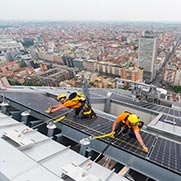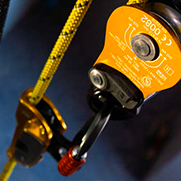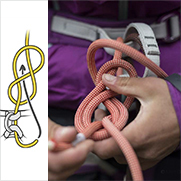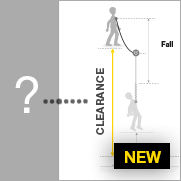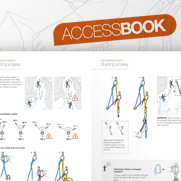Choice of carabiner for the ZIGZAG
Warnings
- Carefully read the Instructions for Use used in this technical advice before consulting the advice itself. You must have already read and understood the information in the Instructions for Use to be able to understand this supplementary information.
- Mastering these techniques requires specific training. Work with a professional to confirm your ability to perform these techniques safely and independently before attempting them unsupervised.
- We provide examples of techniques related to your activity. There may be others that we do not describe here.
Note: in this document the name ZIGZAG means either the ZIGZAG or ZIGZAG PLUS models.
Key issues and risks
The ZIGZAG is used alone, without a backup belay system; the locking system must be as secure as possible. In tree care, it is recommended (or required, depending on the country) to use triple-action locking systems.
When the rope is taut, the carabiner and the device are held in position by the tension. But when the rope is slack, the device and its carabiner can move about and become poorly positioned. So there is a risk of rubbing on the sleeve, or of cantilever loading between the device and the harness attachment point.
The most important risks to consider
Recommendation on carabiner and accessories
For attachment to the harness
Use an Am’D TRIACT-LOCK or BALL-LOCK carabiner and a CAPTIV bar. Let the carabiner stay permanently on the ZIGZAG.
- Security of locking
For attachment to the rope end point
Use an Am’D or OK carabiner with a TRIACT-LOCK or BALL-LOCK system.
- Security of locking
For the connection between ZIGZAG and CHICANE
Use an Am’D or OK carabiner with a TRIACT-LOCK or BALL-LOCK system.
- Optimized compatibility for positioning the CHICANE
Am'D
The asymmetry of the D shape allows for good load distribution and helps resist carabiner rotation.
CAPTIV
- The harness attachment carabiner can stay attached to the ZIGZAG with the CAPTIV bar.
- The CAPTIV bar helps reduce poor positioning of the carabiner, and rubbing on the locking sleeve.
Precautions for use
- Regularly verify that carabiners stay positioned on the major axis, especially when loading them after they have been unloaded.
- With an auto-locking carabiner, each time it is opened and closed, check that the sleeve is completely locked.
- Avoid any pressure or rubbing that could damage or unlock the locking sleeve, and/or cause the gate to open.


